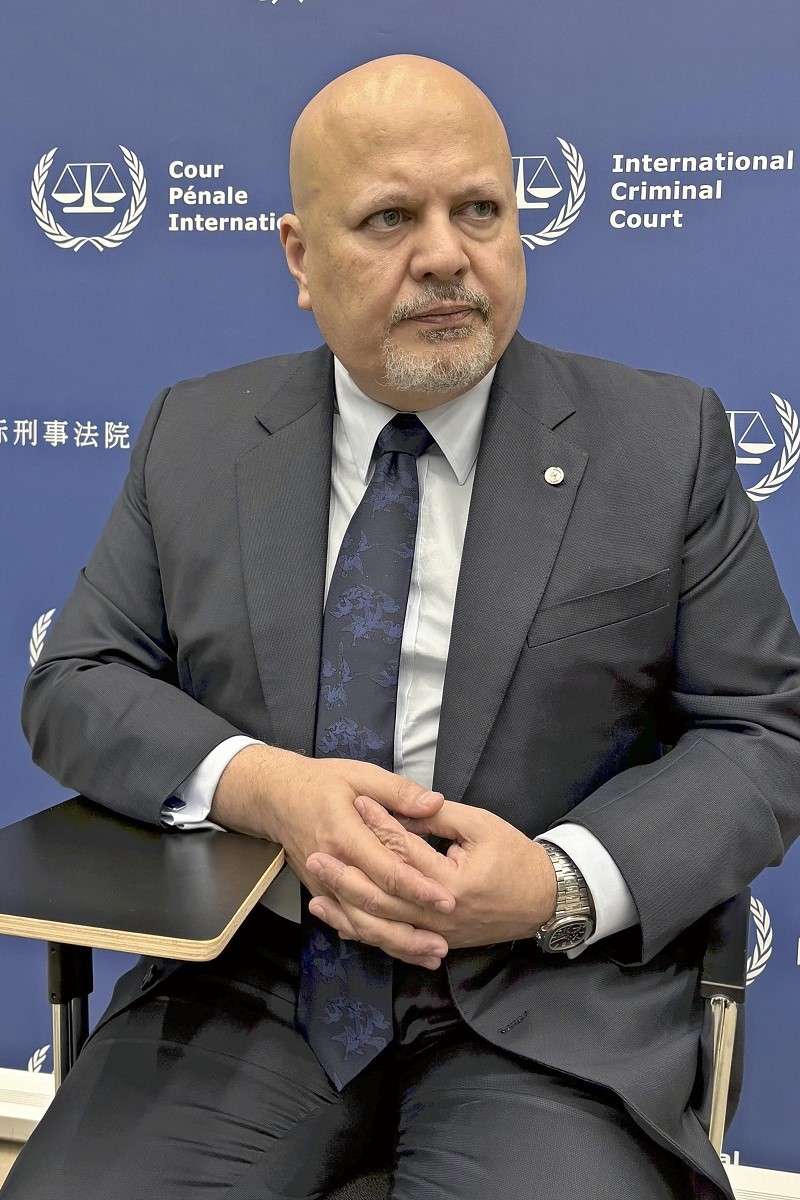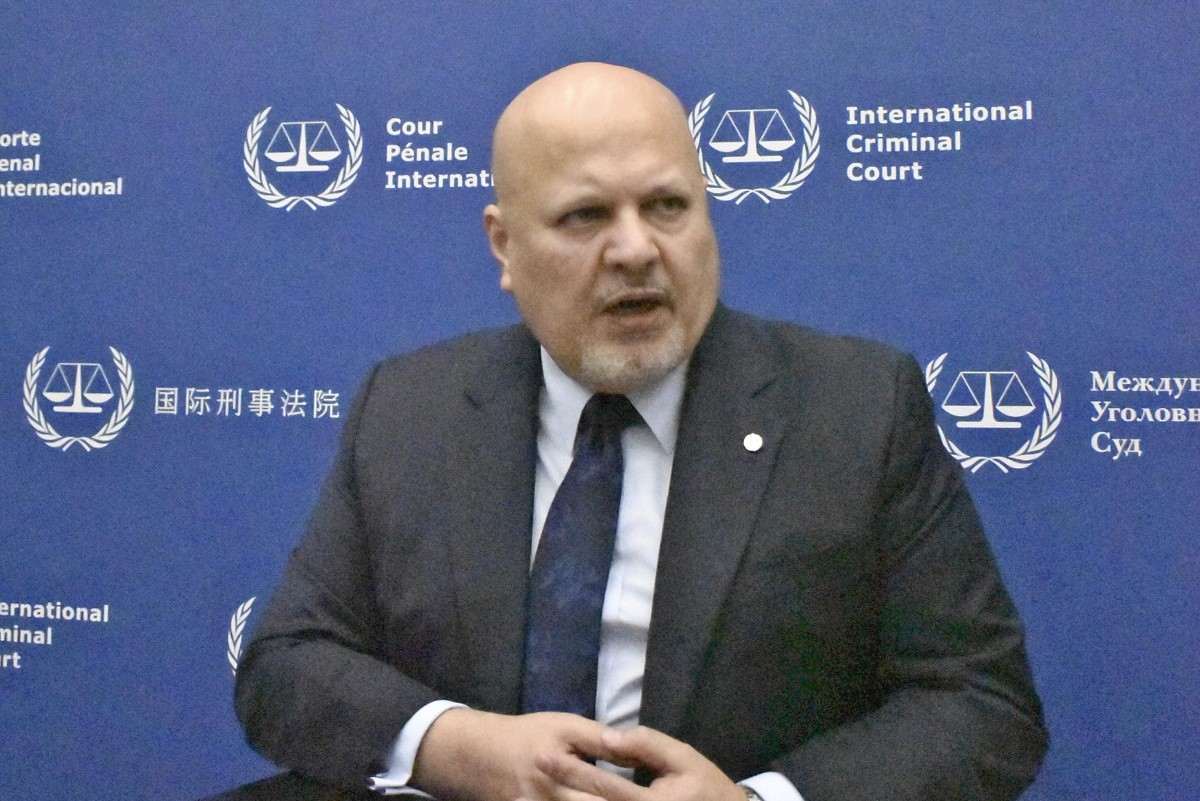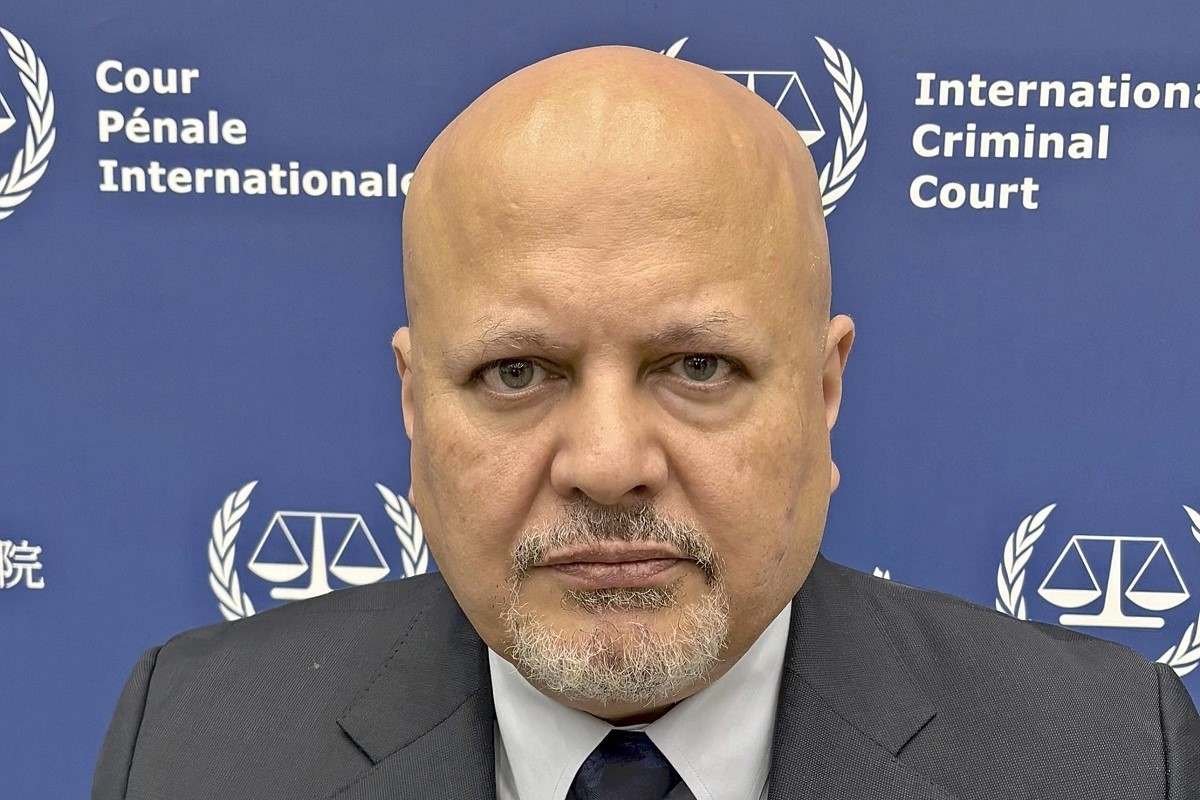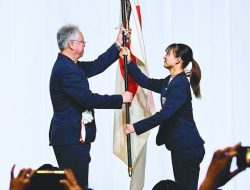ICC Prosecutor: War Crimes Should be Thoroughly Investigated; Talks about Russia, Gaza Situations in Yomiuri Interview

Karim Khan speaks during an interview with The Yomiuri Shimbun at the International Criminal Court’s head office in the Hague on Monday.
15:47 JST, September 4, 2024
THE HAGUE — The International Criminal Court Prosecutor Karim Khan has said that war crimes such as those related to Russia and the fighting in Gaza should be thoroughly investigated.
“Our responsibility is to use our resources effectively to investigate incriminating and exonerating evidence equally until such time as we feel that the major criminal allegations have been thoroughly investigated,” Khan said during an exclusive interview with The Yomiuri Shimbun on Monday.
The ICC began its investigation into Russia immediately after its aggression against Ukraine began in February 2022. The ICC issued an arrest warrant in March 2023 for Russian President Vladimir Putin and others on the grounds that the forced transfer of children in Ukraine to Russia constituted a war crime.
Khan emphasized that the ICC has strengthened its evidence-gathering capabilities over the course of investigations into Russian aggression.
He explained that the ICC has expanded its capacity to use data from artificial intelligence, social media and mobile phones, in addition to traditional interviews, to ensure its investigations are better informed.
“I have tried since I became a prosecutor to instill greater rigor in the quality of evidence … And I think we’ve made a lot of changes over the last three years in increasing our resilience, increasing our performance, increasing the scrutiny of evidence and the types of evidence that can stand up in a courtroom,” he said.
He noted that the ICC investigative office founded in Kyiv “has shown its utility in so many ways.”
Asked about a Russian missile strike that destroyed a children’s hospital in Kyiv in July, Khan said that investigators from the office arrived at the scene within 24 hours.
On the topic of applying for arrest warrants for Israeli Prime Minister Benjamin Netanyahu, he said, “There’s a forum to separate truth from fiction, to get to the truth, and that’s by presenting arguments to the judges.”
Khan made it clear that he did not intend to dwell too much on the merits of Israel’s right to self-defense. “We’ve made it clear in our applications that there was a continuing occupation in relation to Gaza,” he said.
The biggest barrier to ICC investigations and prosecutions is when member countries do not fulfill their obligations to detain suspects with outstanding warrants. Mongolia, for example, has not carried out its obligation to detain Putin.
There have been reports that Putin will visit member Mexico in October.
Some fear that emerging and developing countries — especially those in the so-called Global South, which are generally neutral between Russia and Ukraine — will neglect their obligations.
“Every state party has responsibilities that they have agreed to, that they’ve signed up to [the Rome Statute of the International Criminal Court], and that includes Mongolia or Mexico or any other state that takes part,” Khan said.
He expressed his intention to continue seeking detention for those suspected of war crimes, stressing that “there is no statute of limitations for war crimes …. and law can be patient.”

Karim Khan
Khan is from Edinburgh. He has professional experience as in international criminal law and as a human rights lawyer. He served on the International Tribunal for the Former Yugoslavia and the International Criminal Tribunal for Rwanda. He led a U.N. team to investigate crimes committed by the Islamic State. He was selected as prosecutor of the ICC in 2021 and his term is set to run until 2030.
Top Articles in World
-

Israeli Ambassador to Japan Speaks about Japan’s Role in the Reconstruction of Gaza
-

Videos Plagiarized, Reposted with False Subtitles Claiming ‘Ryukyu Belongs to China’; Anti-China False Information Also Posted in Japan
-

Chinese Embassy in Japan Reiterates Call for Chinese People to Refrain from Traveling to Japan; Call Comes in Wake of ¥400 Mil. Robbery
-

Russia: Visa Required for Visiting Graves in Northern Territories, Lifting of Sanctions Also Necessary
-

Nepal Bus Crash Kills 19 People, Injures 25 Including One Japanese National
JN ACCESS RANKING
-

Producer Behind Pop Group XG Arrested for Cocaine Possession
-

Japan PM Takaichi’s Cabinet Resigns en Masse
-

Man Infected with Measles Reportedly Dined at Restaurant in Tokyo Station
-

Israeli Ambassador to Japan Speaks about Japan’s Role in the Reconstruction of Gaza
-

Videos Plagiarized, Reposted with False Subtitles Claiming ‘Ryukyu Belongs to China’; Anti-China False Information Also Posted in Japan

























